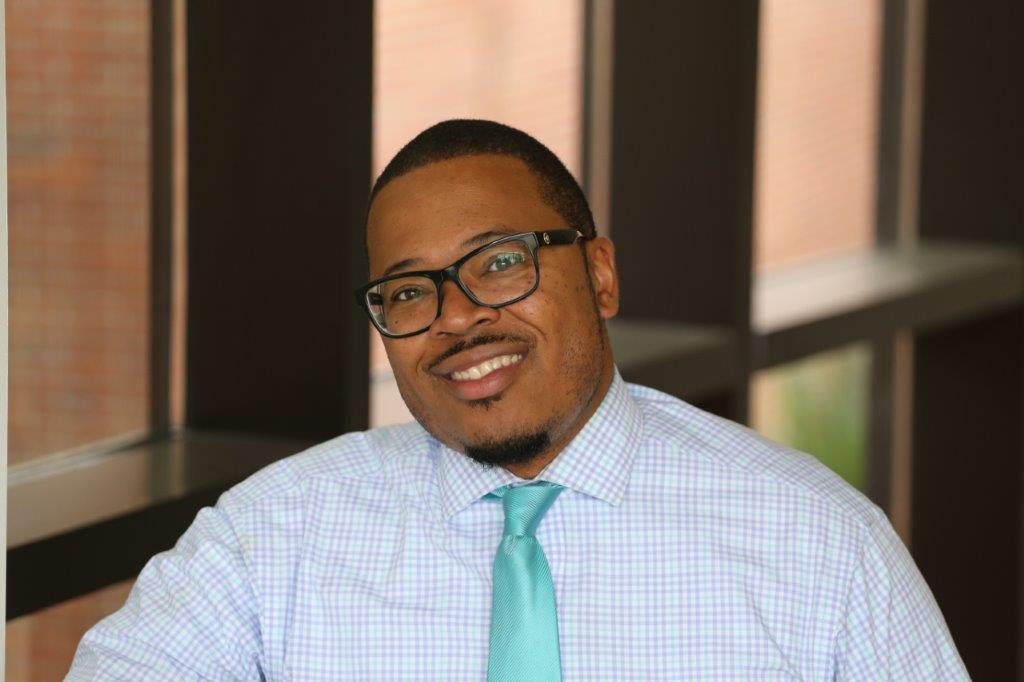College of Education and Human Development
Erik Hines, Professor in the School of Education Counseling Program, Publishes a Book on Engaging Black Males in P-12 Schools
November 7, 2024

Erik Hines
Erik Hines, professor in the Counseling program within the School of Education at George Mason University, has published a book titled, In Pursuit of Academics: Engaging Black Males in P-12 Schools. This edited volume addresses the challenges encountered by young Black males in the education system and offers solutions that will help these students achieve academic success and enhanced social-emotional wellbeing while preparing them for postsecondary opportunities. The chapters featured in the book are authored by experts in education who share their insight on the experiences of Black males in education. They provide recommendations, supported by evidence-based research, on cultivating a mindset in which educators and other stakeholders recognize and honor the strengths and assets of Black males—a mindset that can help young men and boys achieve success during their P-12 education journey and increase their college and career readiness.
Elaborating on why he became involved in this project, Hines stated, “My vision for this book was to provide scholarship with practical solutions that pre-service and in-service educators as well as stakeholders such as school personnel in P-12 schools, could use when working with Black male students. I also wanted to develop a text that could be used in discussing this topic as part of first year courses taught at postsecondary institutions as well as for scholars who are interested in teaching and publishing research on Black males.”
The book examines best practices for assisting and engaging Black males in several areas that include literacy, math, engineering, disabilities, mental health and wellness, gifted and talented education, school discipline, and issues of race and class. Interactive activities such as quizzes and links to resources are provided in each chapter.
The following are several key recommendations discussed in the book that address ways in which the engagement of Black males in P-12 schools can be increased:
- Teachers should create classroom environments that make learning math a fun and interactive experience while relating it to the lived experiences of Black males centering on Blackness;
- Schools should provide Black males with early exposure to the field of engineering and engineering role models to foster positive engineering identity among Black boys. In addition, the use of hands-on activities in the classroom, internships, out-of-school programs, and service learning can serve as interactive methods to engage Black males in engineering;
- Educators should engage Black boys with disabilities in a discussion of how they are making sense of their collective identities, and invite other Black boys and men with disabilities who have found success to share their stories as well;
- School districts should develop and hire more Black male school counselors to assist Black male students with attention to mental health; and,
- Schools should implement alternatives to suspension and expulsion by adopting a more productive and beneficial restorative approach. In addition, school personnel need to view Black males through an asset-based lens rather than a deficit lens.
Hines believes that these recommendations along with others discussed in the book provide a culturally responsive framework for working with Black males. He explained, “The text gives the readers historical context on issues Black males face as well as evidence-based practices that they can incorporate in schools and communities. Moreover, this book can help pre-service and in-service educators examine their biases and beliefs about Black male students and take steps to building relationships with Black males to enhance their educational experience.”
Hines concluded his remarks by acknowledging and thanking the authors for their significant contributions to the book that he believes will have a positive and lasting impact on future research surrounding the experiences of Black males in education. He stated, “I hope the book will continue to inspire scholars to conduct research that will continually improve the outcomes of Black males in academic achievement, mental health and wellness, and in college and career readiness.”
The book is available in both print and digital format. More information on the book may be obtained by visiting the publisher website.
